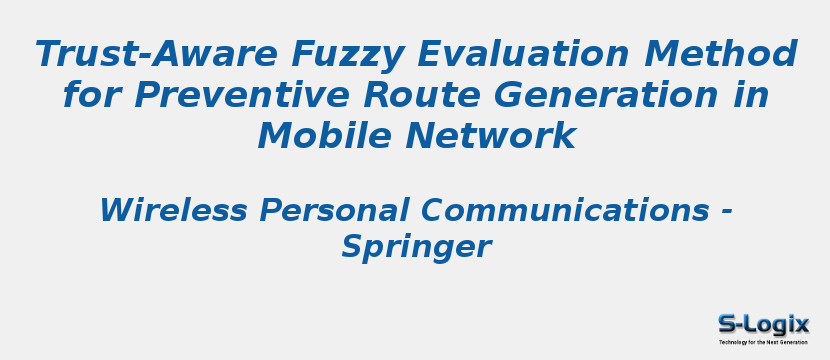Research Area: Mobile Ad Hoc Networks
The existence of a non-cooperative or black hole node as an intermediate node in a mobile network can degrade the performance of the network and affects the trust of neighbor nodes. In this paper, a trust-aware routing protocol is defined for improving the routing reliability against black hole attacks. A new Trust aware and fuzzy regulated AODV (TFAODV) protocol is investigated in this work as an improvement over the existing AODV protocol. The session-driven evaluation of stability, communication-delay, and failure-ratio parameters are conducted for evaluating the trust of nodes. The fuzzy rules apply to these parameters for computing the degree of trust. This trust vector isolates the attack-suspected and trustful nodes. The proposed TFAODV protocol used the trustful mobile nodes as the intermediate path nodes. The proposed protocol has been experimented with in the NS2 simulation environment. The analytical results are obtained in terms of PDR ratio, Packet Communication, Loss rate parameters. The comparative results are derived against the AODV, Probabilistic AODV, PDS-AODV, PSAODV, and Juneja et al. protocols. The analysis is performed on different scenarios varied in terms of network density, degree of stability, and the number of attackers. The simulation results ensured the proposed TFAODV protocol has improved the PDR ratio and reduced the communication loss significantly against these state-of-art protocols.
Keywords:
Author(s) Name: Kapil Juneja
Journal name: Wireless Personal Communications
Conferrence name:
Publisher name: Springer
DOI: 10.1007/s11277-021-08426-y
Volume Information: volume 119, pages 3673–3697 (2021)
